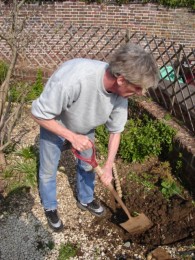We are continuing to look at the Key Indicators that would normally be found in a thriving and effective ministry which embraces the poor. We have looked at some of the more ‘spiritual’ Indicators and then two very practical ones. We now consider two more in the ‘practical’ category which are relevant for the individuals who carry out the ministry.
Key Indicator 3 – Mature leadership
Ministry which embraces the Poor can be very demanding. Often activists are in hostile environments, either due to the types of people being reached or to the secular context in which they are operating.
Leaders of a project need to be spiritually mature both for their own health and for the sake of those they are leading. They should have their own close walk with God and their attitude to the church leadership should be exemplary. (Sadly, ministry among the poor sometimes fosters an independent attitude which is unhealthy.)
Since much of the security of the ministry depends on this healthy relationship with the leadership it is very beneficial if this can be expressed through regular meetings, times of praying together and other opportunities which foster confidence and encouragement. It is also important for the Ministry Leader to be receiving regular times of personal support (see Key Indicator – Pastoral Support to be posted shortly) to ensure there is a safe context for discussing pressures and an opportunity to ‘off-load’ if needed.
Key Indicator 4 – Responding to gifting/passion
In Exodus 31 and 35, in which the construction of the tabernacle is being described, there are frequent references to the workers’ applying their particular gifting and skills to the work. Sometimes this is a practical application, such as spinning goats’ hair, at other times it is an expression of the heart as they donated wealth, jewellery or other materials. Indeed, we read of their heart attitude (e.g. Ex 35:21, 22, 26 etc) through the expression ‘whose heart moved them’.
When defining a ministry it should ideally come both from need and from the availability of people’s gifting and according to their passion. The workers are chosen and involved because of a personal sense of call, because they are appropriately gifted and because they have a heart for the work.
Examples
On September 3rd I quoted (and showed a video clip) the Karuna ministry among leprosy sufferers on the streets of Mumbai, India (The Poor deserve the Best – part 1). What is now a very effective ministry, having provided over 25,000 treatments, arose directly out of the calling of a young man who was listening to the Spirit as he walked to work and responded when told to speak to those lying on the pavement (sidewalk).
 Another example comes from my own church, Church of Christ the King in Brighton. Many years ago a married couple came to the elders asking to start a ministry among ‘street sleepers’ by organising a soup kitchen on the streets of Brighton. Because we knew their track record with such people before they joined the church they were encouraged to go ahead. Immediately 40 people in the church supported them through joining their teams on the streets, preparing food and praying.
Another example comes from my own church, Church of Christ the King in Brighton. Many years ago a married couple came to the elders asking to start a ministry among ‘street sleepers’ by organising a soup kitchen on the streets of Brighton. Because we knew their track record with such people before they joined the church they were encouraged to go ahead. Immediately 40 people in the church supported them through joining their teams on the streets, preparing food and praying.
Out of this initiative came two ministries. First a flourishing ‘drop in’ (Friends First) with a meal, clothes and friendship one evening each week. Second a Supported Housing Unit which helps men and women improve their life skills, equipping them to achieve sustained independence
The result of having a team built on calling, gifting and ‘heart’ will be great commitment and diligence by the Team members. It also gives reason why God has put those particular individuals in the church – they are there for His purposes.
The following video shows the Supported Housing Unit referred to
Supported Housing Unit, Church of Christ the King, Brighton from Newfrontiers on Vimeo.
